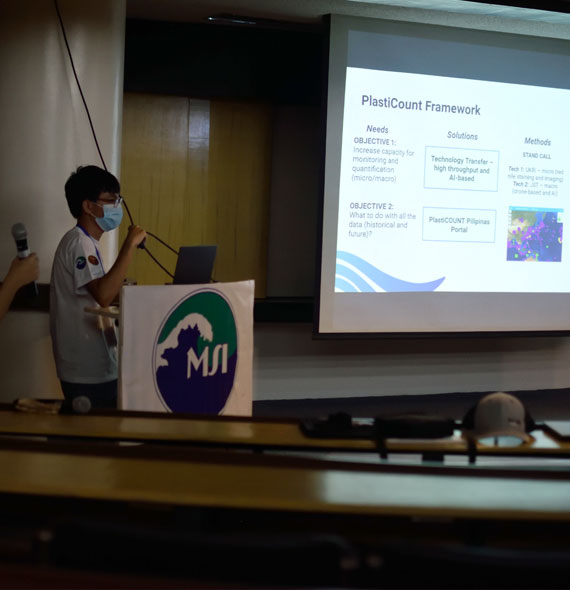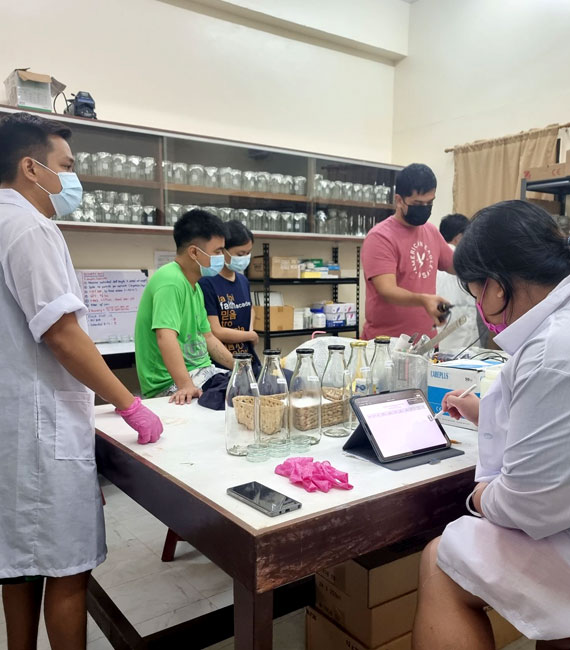
PlastiCount Pilipinas Training Program (PlastiCount-TP)
August 5 - November 25, 2022
In line with the project’s objective of increasing local capacity for the monitoring and quantification of micro- and macro-plastics in the Philippines, the PlastiCount-TP is conducting a training program for personnel from relevant national government agencies concerned with monitoring plastics pollution such as the Department of Environment and Natural Resources (DENR), Department of Science and Technology (DOST) and the Philippine Coast Guard (PCG). After the training program, each participant is expected to implement the micro- and macro-plastic monitoring technologies to come up with baseline data for marine litter in the country.
Specifically, PlastiCount-TP aims to achieve the following objectives:
- Identify priorities areas of concern of the NGA that would require baseline data generation
- Learn traditional and advanced techniques and technologies for micro- and macro-plastics quantification
- Apply both manual and advanced quantification techniques for micro- and macro-plastics in the identified priority site for research publications, policy recommendations and presentations
This training program is brought to you by the UP Marine Science Institute and PlastiCount funded by DOST-GIA.
Plastics Research Intensive Methods Training Program (PRIMe-TP)
October 14 - 26, 2022
The workshop has been developed as part of the effort to increase and expand our capacity to do plastics research in the country. This project aims to conduct an all-expense paid two-week intensive training program in the Microplastics Quantification, Identification, and Biodegradation (MicroQuIB) Facility of Bolinao Marine Laboratory for Philippine-based researchers, with early career scientists (graduate students, faculty, resident researchers of universities or NGAs) as the main target participants of this program. Training will include methods to collect, quantify, extract, and identify macro- and microplastics from environmental and biological samples using traditional and advanced methods.
Specifically, the workshop aims to train participants on the following:
- field collection and baseline surveys in select rivers and coastal sites;
- use of different equipment (FTIR, stereomicroscope, drone, automated microplastics counter);
- techniques (density separation, chemical digestion, vacuum filtration) for macro- and microplastics analyses, and
- application of “artificial intelligence (AI)” or machine learning to automate quantification and identification of macro- and microplastics from images.
This training program is brought to you by the UP Marine Science Institute, Plasmics funded by DOST-NRCP, PlastiCount funded by DOST-GIA and monitored by DOST-PCIEERD, and MicroSEAP funded by UKRI-NERC, in cooperation with Circular Explorer, One Earth-One Ocean and Holcim.

